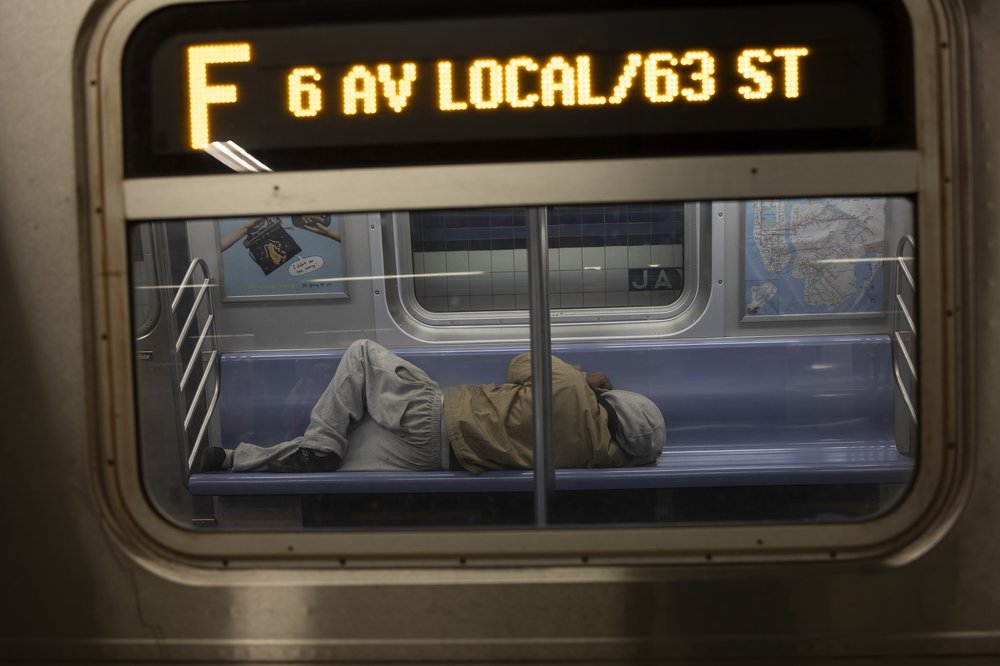No panhandling, peeing or lying on subway seats: NYPD launches new quality-of-life division
Jan. 30, 2025, 12:03 p.m.
Police Commissioner Jessica Tisch said two new initiatives are aimed at making people feel safe.

The NYPD will create a division targeting low-level quality-of-life crimes like aggressive panhandling, some street vending, public urination and abandonment of vehicles, Police Commissioner Jessica Tisch said on Thursday.
The new division comes after what Tisch said was a similar pilot program in New York City's subway system that focused on enforcing rules against activities like lying on subway seats, smoking and drinking alcohol in the transit system.
Tisch said these two new initiatives are meant to make people feel safe. Police data shows overall crime rates have been falling for at least the last two years.
“Our work must not only make people safe, but it must make them feel safe too,” Tisch said at the department's annual state of the NYPD speech. “Our officers will not simply walk by someone who is violating the law and disrupting passengers. We are going to correct the condition.”
Tisch said details of the new quality-of-life division will be rolled out in the coming months. She said it will have a chief-level commander and pull officers from local precincts.
The division will also track quality-of-life complaints in the same way as CompStat, the department’s system for tracking crime data, which is largely credited with reducing crime in the mid-1990s.
In her speech, Tisch said the new initiatives would be coupled with proactive measures to help people who are homeless or have mental illness.
“ Our subway trains and platforms are not homeless shelters. They are not psychiatric hospitals,” she said. “As a city, we have a moral duty to provide services to people who need them.”
NYPD crackdowns on quality of life issues are not new. Mayor Eric Adams has used police to dismantle homeless encampments, ticket unlicensed street vending and stop fare evasion. In 2019, then Gov. Andrew Cuomo hired 500 more MTA officers to combat quality of life issues in the subway.
Policing of quality of life issues sparked citywide protests in the wake of Eric Garner’s death in 2014. Officers had tried to arrest Garner for selling untaxed cigarettes when one officer placed him in a chokehold.
Peter Moskos, a criminologist at John Jay College, compared Tisch’s new initiatives to “broken windows” policing, a crime-fighting strategy that focuses on small quality of life violations that may lead to more serious crimes.
“Broken windows needs good leadership,” he said. “We have to make sure that it's not just getting stats for stats sake. You have to identify what the problem is, and then [broken windows] becomes a tool to address that problem.”
Moskos said broken windows policing was abandoned in 2017 under Mayor Bill de Blasio who was responding to community concerns of over policing and frequent stops and searches of people who were not accused of any crimes.
“You have to make sure it doesn't simply become a matter of generating stats that don't actually work in addressing the problem,” he said.
In her remarks, Tisch said tracking statistics—what she called Q-Stat— will be a key part of her new plan. However, she added that the goal is to target “ the surge of random acts of violence that we're seeing in the subways.”
“The overwhelming majority of people who commit these violent acts have a long history of unlawful conduct in the transit system,” she said.
MTA chair Janno Lieber praised Tisch’s new effort, calling her the commuters’ greatest ally. He said commuters want to see more officers on the trains.
“ They also want a truly safe and orderly environment. So talking about the quality of life issues is great news for subway riders,” he said.
This story has been updated with additional information.
MTA reports dip in fare evasion as NYPD arrests skyrocket in subway system NYC to put more police on subway cars and platforms, despite 3% drop in overall crime